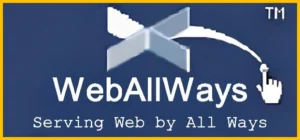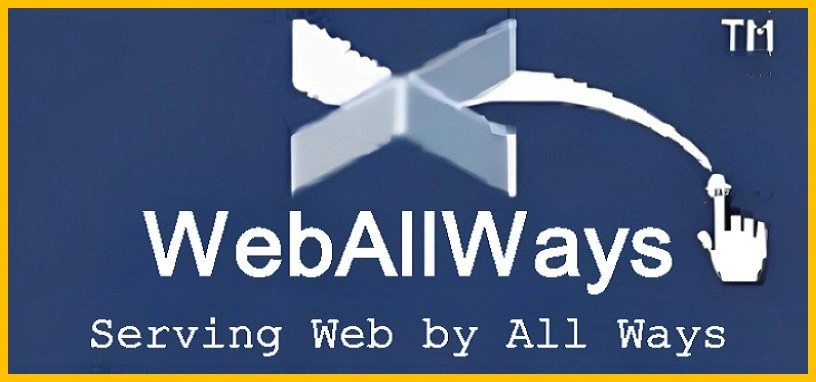
Every high authority website on the Internet today began at the bottom, just to be honest with you. You simply need to progress (Siri, play Drake’s “Started from the bottom”) The system is set up in this manner. Actually, as you progress, it becomes more difficult to achieve a higher score. As a result, moving down the scale from 1 to 20 is simple. Another level of difficulty is landing between 40 and 60, but if you succeed, you deserve a pat on the back. Why? because you’ve advanced to the top division!
Growing your domain authority to the 70-100 range is much more difficult. much more difficult? Yes. impossible? No. So get ready instead of complaining about how many other websites are far ahead of you! We are about to give you the tried-and-true strategies for boosting your domain authority. You’re ready, right? Let’s start now!
Work on your off-page SEO – Off-page SEO is the term used to describe activities that occur away from your website. Consider it in terms of outside strategies for expanding your audience and effectively marketing your website. Influencer outreach is an off-page SEO strategy that has been successful. This entails contacting well-established organizations (corporates and individuals) and requesting their kind permission to share your content. Reaching out to authoritative websites and requesting that they link to a high-quality post that is pertinent to them is another component of influencer outreach. Naturally, they won’t share your content unless it satisfies a particular criteria. However, if they do share your content, their followers will pay attention to you.
The visibility your site will receive from you will be appreciated. Joining pertinent discussion forums and responding to queries on “question and answer” websites are two additional actions that seem underappreciated. Search engines and those looking for information adore these websites. Your job is to participate actively in discussions and respond to inquiries related to your area of expertise. In essence, you are establishing yourself as a subject matter expert. Include links to your website’s posts that are pertinent to the inquiry as well. What happened? an increase in website traffic, brand exposure, and domain authority!
On-page SEO matters, too – On-page SEO is the term used to describe optimization procedures performed on a website’s pages. In contrast to their off-page counterparts, they are simple and quick to implement. A site’s URL structure is a crucial component of on-page SEO. It should be set up so that the site’s category hierarchy is visible. Because it aids in identifying the essence of a particular page, search engines pay attention to it. Additionally, it matters because users will link to the keyword with ease if it contains keywords (it should).
Title tags are another component of on-page SEO. A website page’s title is specified by title tags. It’s simple to stop giving them much thought. However, when your site appears on a search engine result page, they serve the purpose of luring users to click. Additionally, they provide a brief explanation of the page’s content and assist with search engine optimization. To avoid losing that click, you must make them appealing enough to grab users’ attention. Users have a propensity to become disoriented and lose focus on your content at any given time. In that case, if a user has multiple tabs open and the page’s content is being reminded of, the good title tag acts as the placeholder. Additionally, when you share your page on social media sites, the title tags are used and shown.
Keywords are part of on-page SEO – On-page SEO is rarely discussed without mentioning the term “keywords.” Many people actually believe that keywords are the only aspect of SEO. Although it isn’t, keywords are crucial if you want to increase the visibility of your website and your domain authority. To make a page’s content flow naturally, keywords should be smoothly added. The era of keyword stuffing is over. As a result, keywords should be deftly used throughout the text and even in alt texts for images.
Go hard on technical SEO – If you want to increase the authority of your domain, you must obviously improve in all areas of SEO. Technical SEO aims to improve the overall functionality of the website so that it can be crawled, indexed, and seen by search engines. Technical expertise is needed, as the name suggests. The good news is that you won’t typically need to do technical SEO again once you’ve mastered it.
One of the main components of technical SEO is security. To make your website HTTPS, you should include SSL (Secure Socket Layer). As a result, only https and not http can be used to access your website. What’s so special about HTTPS? Additionally, it increases user trust and aids in search engine ranking. It demonstrates that all data exchanges between your website and the server are secure thanks to encryption. You are aware of how pertinent this is if you have ever made an online purchase.
Optimizing your 404 page aids technical SEO – Site owners occasionally remove specific pages from their websites. Users frequently err when entering URLs into their browsers. This brings us to the requirement for 404 page optimization. An optimized 404 page notifies users that the page they are looking for is not available as part of technical SEO. Additionally, it suggests related pages or offers a straightforward way to go back to important website pages. Additionally, it ought to have your site’s navigation and structure menus.
Simply misspell a website’s URL in your browser and search to get an idea of how your 404 page appears. However, be sure to correctly enter the root domain.
Keep your social media marketing game on lock – Do not mistake social media for a platform that is only appropriate for sharing humorous videos. Keep in mind that everything is connected when using the Internet. Having said that, social signals greatly benefit the domain authority of your website. Share a post you’ve published on Facebook, Twitter, Pinterest, and even LinkedIn. By all means, keep up your campaign there as well if you are active on other platforms.
Search engines value these platforms highly, so if your link appears frequently on them, you’re in for a treat. On Twitter, Jeff Bullas is very active. There, every post is made available for thousands of followers to read and click. What a quick way to achieve increased traffic, higher domain authority, and optimized visibility.
Be patient – The truth might burst your bubble, despite how much we’d all like to see our domain authority scores soar through the air overnight. The domain authority of a website can be anything, but it’s not magic. Strategic decisions made over a long period of time result in an increase in domain authority. Any website with a domain authority of at least 50 has probably been active for some time and is jam-packed with quality content. WebAllWays can be used to determine the domain age of any given website. Look at the site’s domain age in the image below.
This website has been operational for at least ten years. As we saw in an earlier image, it has a DA score of 72. So, my friend, rest easy rather than staying up all night hoping for a spike in your domain authority score. Do everything we’ve said so far and then wait it out. Because, regardless, time will pass. It takes time for everything good. The expansion of your domain authority follows suit.
